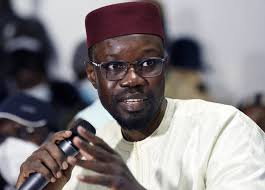The African Union Commission (AUC) and the African Development Bank Group’s (AfDB) African Leaders for Nutrition (ALN) initiative, in collaboration with the government of Senegal, have commenced series of regional consultations with the aim of transforming nutrition policies and financing and ending malnutrition in Africa.
The inaugural two-day consultation for the West Africa region, which was held on August 19 and 20 in Dakar, Senegal, marked the beginning of an ambitious journey to develop Africa’s first-ever Multisectoral Nutrition Policy Framework (MNPF) and an investment target for combating malnutrition.
A news report from African Press Organisation (APO) Group circulated on behalf of the AfDB, indicated that the consultation concluded having successfully gathered the data needed to develop MNPF and investment targets, while also building consensus on interventions to reduce stunting, wasting, anaemia, and overweight among women, children, and adolescents.
In addition, the consultations generated actionable sector-specific insights and recommendations to inform the MNPF’s development and ensure effective implementation across all sectors.
According to the news report, the initiative is an outcome of a resolution passed during the African Union’s 41st Executive Council meeting held in Lusaka, Zambia in 2022, and which called for the development of a multisectoral policy framework, and a nutrition investment target to ensure adequate funding for nutrition initiatives.
Speaking on the initiative, Director of Cabinet for the Prime Minister of Senegal, Ousmane Sonko, and President of the country’s National Council for Nutrition Development, at the event’s opening ceremony, Ibrahima Gueye, said: “Increased funding for nutrition starts with greater awareness of its importance by our leaders. It is imperative that heads of state and government understand that every dollar invested in nutrition is a dollar invested in the future of our nations.
“However, this understanding must be followed by…stronger ownership of nutrition goals and a firm commitment to mobilising sustainable resources for nutrition and using funds in a timely and effective manner. This regional concertation marks a crucial step in this process”, Gueye added.
In his remarks, the AUC’s Technical Advisor for Nutrition Policy, Gertrude Kara, enthused: “This first regional consultation is a critical step towards developing a unified, continent-wide approach to nutrition policy and financing. The insights gathered here will inform similar consultations across Africa, ultimately leading to a comprehensive framework to improve nutrition outcomes for millions across the continent.”
Similarly, the AfDB’s ALN Coordinator, George Ouma, said: “By bringing together experts from various sectors, we’re fostering a holistic approach to nutrition. This consultation will not only shape policies in West Africa but will also inform our continent-wide strategy for improving nutrition outcomes.”
Experts believe that the consultations will also serve to drum up support for African countries to participate in the Nutrition for Growth Summit, a global event held every four years in the Olympic host country to mobilise commitments and accelerate progress toward ending malnutrition by 2030, is scheduled to hold in France next year.
Participants at the consultation pledged to work collaboratively to prioritise high-impact interventions across the health, social protection, water and sanitation, education, and agriculture sectors, and create a model for other regions to follow.
This regional consultation for West Africa is the first in a series that will cover all five regions of Africa, culminating in the development of the multisectoral nutrition policy framework and investment target for the entire continent.
The African Leaders for Nutrition (ALN) Initiative, being spearheaded by the AfDB and championed by African leaders, works to galvanise political will and significant investments to end nutrition.
Since it was officially endorsed on January 31, 2018 by the AU Assembly of Heads of State and Governments, ALN has secured critical commitments from governments across Africa, leading to impactful policy changes and cross-sector collaborations.
The Dakar event brought together experts in healthcare, nutrition, education, agriculture, and finance from nine West African countries, as well as representatives of the governments of Senegal, Togo, Ghana, Nigeria, Gambia, Guinea-Bissau Liberia, Sierra Leone, and Côte d’Ivoire among others.
Civil society organisations, UNICEF and the World Food Programme of the United Nations, and development partners Scaling Up Nutrition Movement, the Canadian International Development Agency, and other key nutrition stakeholders were also represented at the forum.






